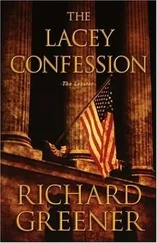Richard Greener - The Knowland Retribution
Здесь есть возможность читать онлайн «Richard Greener - The Knowland Retribution» весь текст электронной книги совершенно бесплатно (целиком полную версию без сокращений). В некоторых случаях можно слушать аудио, скачать через торрент в формате fb2 и присутствует краткое содержание. Жанр: Триллер, на английском языке. Описание произведения, (предисловие) а так же отзывы посетителей доступны на портале библиотеки ЛибКат.
- Название:The Knowland Retribution
- Автор:
- Жанр:
- Год:неизвестен
- ISBN:нет данных
- Рейтинг книги:5 / 5. Голосов: 1
-
Избранное:Добавить в избранное
- Отзывы:
-
Ваша оценка:
- 100
- 1
- 2
- 3
- 4
- 5
The Knowland Retribution: краткое содержание, описание и аннотация
Предлагаем к чтению аннотацию, описание, краткое содержание или предисловие (зависит от того, что написал сам автор книги «The Knowland Retribution»). Если вы не нашли необходимую информацию о книге — напишите в комментариях, мы постараемся отыскать её.
The Knowland Retribution — читать онлайн бесплатно полную книгу (весь текст) целиком
Ниже представлен текст книги, разбитый по страницам. Система сохранения места последней прочитанной страницы, позволяет с удобством читать онлайн бесплатно книгу «The Knowland Retribution», без необходимости каждый раз заново искать на чём Вы остановились. Поставьте закладку, и сможете в любой момент перейти на страницу, на которой закончили чтение.
Интервал:
Закладка:
“Listen, I test people as a matter of reflex. It’s what I’ve been doing for thirty years. I knew I didn’t have to do it with you, and I tried to stop several times.”
She stared at him with a blank expression.
Walter smiled sadly. “I really did.”
“I can live with that,” she said, doing her best to conceal her delight in the sorrowful look on his face and the soft, tightened sound of his voice.
During the next day and a half, while Isobel was at work, Walter taxied from the Mayflower and worked in her flat. He sat in her kitchen reading the hundreds of pages of printouts she’d left him. Then he read them again. He focused on where the “A-group” survivors lived, how their lives had been changed, who’d moved, who’d quit jobs or been fired, gotten in trouble, divorced, found a new sweetheart or spouse. Who sued and what was known about how much they got? One by one he wanted to know: Where were they at this moment?
He knew how loss creates fresh separations: between survivors and friends, neighbors, relatives, each other. When a hamburger’s killed one of your children, how do you ever send the others to McDonalds? How do you explain why they can’t go? What do they tell their friends? Survivors are reminders. How many parents protect their kids by keeping them apart from the ones who lost parents or brothers or sisters? Men sometimes moved, like divorced men sometimes do, away from their old neighborhoods, away from the couples they knew when they were a couple too. Many people changed jobs, suddenly strangers with people at work. Amid the routines of devastation, Walter searched patiently for the abnormal. He made calls, discovered employers and co-workers, neighbors and friends, turned up new girlfriends, old flames, estranged family members. Most were easy to talk to. It was no surprise to Walter. This was what he’d been doing for years. He knew how to approach people, how to help them tell him what it was he needed to learn.
When Isobel returned in the evening she told him about the magical note: “I killed Floyd Ochs.”
“ Who killed Floyd Ochs?” she asked Walter. She told him some called it a fraud or a very bad joke. She suspected that some considered her to be the note’s author. She told him it was a blessing because it confirmed what she thought she knew. Walter said he was glad it made her feel better, but it didn’t change very much for him, except for what it told him about the killer. They had a drink and walked up to Broadway and found a place to talk about survivors.
When Walter was ready to leave New York, he kissed Isobel on the forehead and told her, “I have what I need for now. I do my thinking better at home. Come visit me. You’ll like it.” He promised to call in a day or two.
Clara gave him a message from Tom Maloney. He’d called while Walter was in New York. Walter called back on Tom’s twenty-four-hour number. He said he was making progress but had nothing to report. Then he said, “I don’t work this way, Tom. I tried to make it clear before. If I need to talk to you, I’ll call. Otherwise, back off and let me do what I’m doing.” Maloney said he would. Walter knew he wouldn’t, not for a while anyway. Years ago, Walter had rejected the notion of being supervised. Making it stick wasn’t always easy. The people he worked for supervised whom they pleased. He quit one job and sent back most of the money. But that was the only time it came to that. Otherwise, he delivered a real conclusion, happy or not.
Two days later, Walter identified Leonard Martin.
When he did, he found it odd that he had been hired to find this guy, or that this guy went where he did. Walter knew the Caribbean as only a resident could. Isobel had a Jamaican address for Leonard Martin, and something about it rang a bell with Walter. Leonard moved from Atlanta, retired from his law firm, and set up housekeeping in the Bahamas. He ran from his loss like so many others. He just had more money than they did. Checking out Leonard Martin’s address was easy and confusing. Walter knew the Jamaica slum where Leonard bought his house. People with money didn’t live there. No white tourists or exiles, certainly. They avoided places like that for very good reason. And there was no marina for miles around. A boat in that neighborhood had oars. Red flags started waving.
Unless he’d gone Rasta, nuts on weed, or both, Leonard Martin was nowhere near Jamaica. Walter called bars, restaurants, even local stores. No one knew a white man named Leonard Martin. The only fat, troubled American Walter heard mentioned was a priest named Ryan who drank heavily for a year or so until he met a local woman named Claudia. Now they fished together on their boat and apparently lived a happy life.
The deeper and wider his search for Leonard Martin, the more he discovered about him, the less he knew where to find him. Walter called people in Atlanta. He put together a detailed version of Leonard’s life and downward spiral. He learned about his family, his law firm, his habits and tastes, even the Community Players and Barbara Coffino. He quickly got past the Bahamas dodge, but stymied in Jamaica. Did Leonard ever get there? If not, where did he go? Where was he now? What had he done? As a matter of very intense professional interest, what would he do next? Finding people was an art, a practiced and disciplined activity Walter Sherman had developed to its highest degree. It seemed simple, but no element of the process was more important than knowing when your goal was reached. A journey of a thousand miles always began with the first step-everyone knew that-but how many could spot the finish line with equal precision? The authorities couldn’t. Walter was sure of that. Leonard Martin was a big target. No one’s loss had been greater. But as soon as the cops began investigating him, they’d have learned he moved to the Bahamas and took twelve million dollars with him. His former law partners would have vouched for him, as would anyone else the cops might have talked to. If they even bothered to check, they would have found the house and property he bought in Jamaica, and the boat too. Soon enough, Leonard Martin’s file would have been tossed into the pile marked “Checked Out.” Walter knew that’s the way it probably played out because he’d seen it happen many times before.
But Walter also knew Leonard Martin was his man-no doubt about it. He’d cleaned out and packed up every aspect of his life, what was left of it, and disappeared. Most telling, he disappeared on purpose. Walter thought Leonard had good instincts. A man who intended to do what Leonard was doing needed to cover his trail, cut himself off from anyone capable of endangering him, isolate himself for the task ahead. Leonard Martin’s trail was not cold. It was frozen.
Walter called Tom Maloney in New York. He told him he had identified Leonard Martin and gave him a brief explanation. He then offered Tom a choice. Walter could continue his efforts to find the man, as agreed, or Tom could release the name in powerful circles and rely on law enforcement to do the job. If he opted for the second choice, Walter said that would entail a substantial cash refund. “A million dollars is a lot to pay for what I’ve done.”
Tom said, “Walter, I can’t adequately express my gratitude. It’s really wonderful news. You’ve more than justified your fee. I’ve got to go with your first option and let me tell you why. Between you and me, law enforcement is useless. Its incompetence will be a central theme in the social history of this country in the twenty-first century. We’re not kidding ourselves, are we? I know some of these guys and I guess you know some yourself. Would you trust them to finish the job? I wouldn’t. What’s more, I don’t want a bunch of civil servants out there scaring the fish away. You know what I mean? I want you to do your job and find the man. Once we know where he is, when you have him, I know we’ll be able to handle it. Is that satisfactory to you?”
Читать дальшеИнтервал:
Закладка:
Похожие книги на «The Knowland Retribution»
Представляем Вашему вниманию похожие книги на «The Knowland Retribution» списком для выбора. Мы отобрали схожую по названию и смыслу литературу в надежде предоставить читателям больше вариантов отыскать новые, интересные, ещё непрочитанные произведения.
Обсуждение, отзывы о книге «The Knowland Retribution» и просто собственные мнения читателей. Оставьте ваши комментарии, напишите, что Вы думаете о произведении, его смысле или главных героях. Укажите что конкретно понравилось, а что нет, и почему Вы так считаете.











